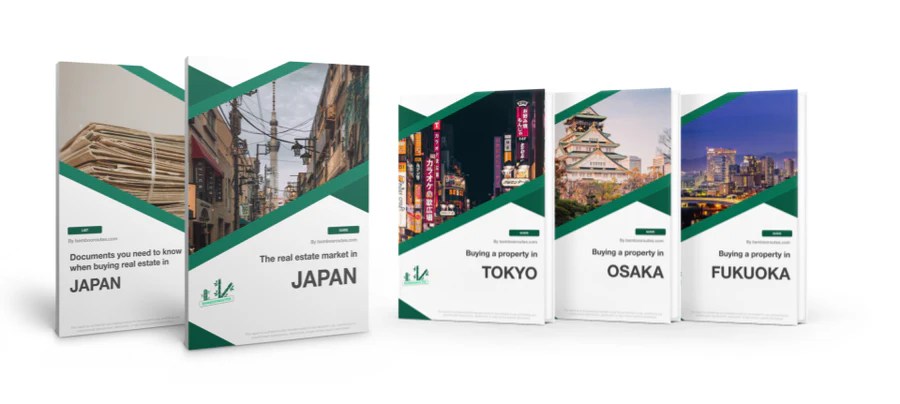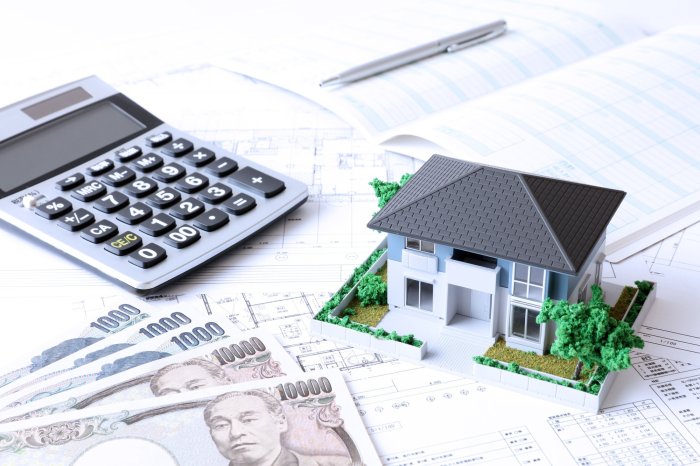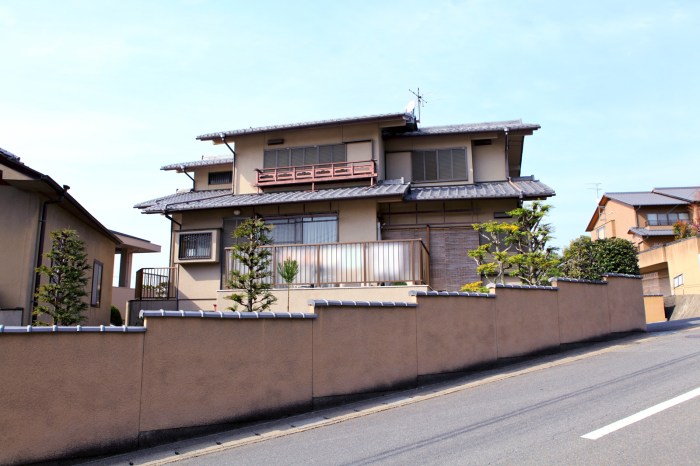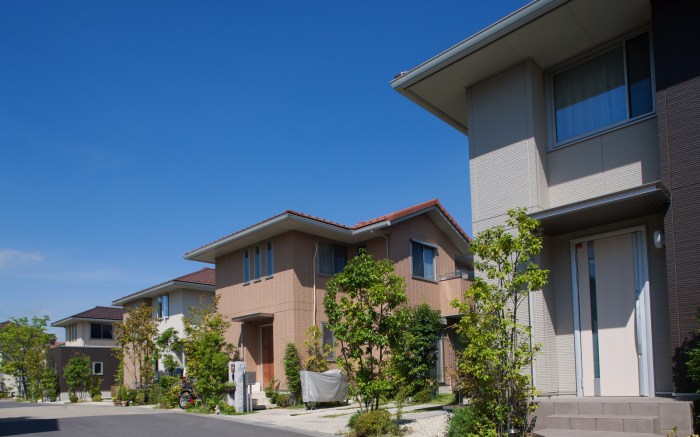How to buy a house in Japan as an American? It sounds daunting, right? But with the right knowledge and preparation, it’s entirely achievable. This guide walks you through the entire process, from understanding the Japanese real estate market and navigating legal requirements to finding the perfect property and completing the purchase. We’ll cover everything from securing a mortgage and choosing a real estate agent to understanding Japanese property laws and cultural nuances.
Get ready to embark on your Japanese homeownership journey!
Buying a home in Japan as an American differs significantly from the US process. Japanese real estate transactions involve specific legal frameworks, cultural considerations, and financing options. This guide breaks down the key steps, providing practical advice and insights to make your experience smoother and more successful. We’ll explore the unique aspects of the Japanese market, compare property types, and help you understand the financial and legal implications involved in owning a property in Japan.
Understanding the Japanese Real Estate Market
Buying a house in Japan as an American presents unique challenges and opportunities compared to the US market. Navigating the cultural nuances, legal processes, and market dynamics requires careful planning and research. This section will Artikel key differences and guide you through the process.
Differences Between Japanese and US Real Estate Markets
The Japanese real estate market differs significantly from the US market in several key aspects. Firstly, the concept of “ownership” can be subtly different. While you’ll hold legal title, the specifics of land rights and building regulations are more stringent. Secondly, the market is less transparent than in the US, with less readily available online information in English.
Thirdly, financing options for foreigners may be more limited, and securing a mortgage might require a larger down payment or a guarantor. Finally, the Japanese real estate agent plays a much more central role in the transaction than is typical in the US.
Finding a Property in Japan
Finding a suitable property typically begins with identifying your desired location and budget. While online listings exist, engaging a reliable real estate agent fluent in English is highly recommended. These agents have access to off-market listings and can navigate the complexities of the Japanese legal system. Once you’ve identified potential properties, viewings are arranged, and negotiations begin, often involving multiple rounds of offers and counter-offers.
Thorough inspections, including checks for structural integrity and potential issues with the land, are crucial before proceeding.
Comparison of Property Types Available to Foreigners
Foreigners have access to a range of property types in Japan, including detached houses, apartments (マンション, manshon), and townhouses (タウンハウス, taunhausu). Detached houses offer more privacy and space but often come with higher prices and maintenance costs. Apartments are more common and generally offer more affordable options, particularly in urban areas. Townhouses represent a middle ground, providing a balance between privacy and convenience.
The availability of each type varies significantly by location and price range. The choice depends largely on individual preferences and financial capabilities.
Average House Prices in Different Japanese Cities
The following table provides a general comparison of average house prices across several major Japanese cities. Note that these are estimates and can vary considerably based on location, size, condition, and amenities. It is crucial to conduct thorough research for a specific property.
| City | Average House Price (JPY Million) | Notes | Currency Conversion (USD Approx.)* |
|---|---|---|---|
| Tokyo | 70-150+ | Prices vary dramatically by ward and proximity to stations. | 500,000 – 1,000,000+ |
| Osaka | 40-90 | Generally more affordable than Tokyo, but still varies greatly. | 280,000 – 630,000 |
| Kyoto | 50-120 | Prices can be higher in traditional areas. | 350,000 – 840,000 |
| Fukuoka | 30-70 | Relatively more affordable than major metropolitan areas. | 210,000 – 490,000 |
Currency conversion is approximate and subject to fluctuation. Consult a financial professional for the most up-to-date exchange rates.
Legal and Financial Requirements

Source: shopify.com
Buying a house in Japan as an American involves navigating a unique legal and financial landscape. Understanding the specific requirements beforehand is crucial for a smooth and successful transaction. This section Artikels the key legal and financial aspects you need to consider.
Visa Requirements for Property Ownership
Owning property in Japan doesn’t automatically grant you residency. Your visa status significantly impacts your ability to purchase and maintain property. Generally, you’ll need a visa that allows for long-term residency, such as a work visa, spouse visa, or a specific investor visa. A tourist visa or short-term business visa will likely not suffice. It’s essential to consult with the Japanese embassy or consulate in your country to determine the appropriate visa for your circumstances and ensure it complies with Japanese immigration regulations regarding property ownership.
Failing to have the correct visa could lead to complications in the purchasing process and potential legal issues down the line.
Securing a Mortgage in Japan as an American
Obtaining a mortgage in Japan as a foreign national can be more challenging than for Japanese citizens. Japanese banks are generally more cautious about lending to foreigners. They may require a higher down payment (often 30-50% or more), a stronger credit history (potentially requiring a Japanese credit score), and substantial proof of income and assets. You may find it easier to secure a mortgage through international banks with operations in Japan or specialized mortgage brokers familiar with the needs of foreign buyers.
Alternatively, you might consider financing the purchase entirely through personal savings or investments. The interest rates and loan terms will vary depending on your financial profile and the chosen lender. Expect a thorough credit check and documentation review.
Property Taxes and Associated Fees
Property taxes in Japan are levied annually by local municipalities and are based on the assessed value of the property. The tax rate varies depending on the location and type of property. In addition to property taxes, you’ll encounter various other fees throughout the buying process, including registration fees, legal fees, agency fees (paid to the real estate agent), and potentially notary fees.
These fees can add up significantly, so budgeting for them is critical. You should consult with a real estate professional and a tax advisor familiar with Japanese property transactions to obtain accurate estimates of these costs for your specific situation.
Potential Legal Challenges Faced by Foreign Buyers
While purchasing property in Japan is possible for foreigners, some legal hurdles exist. Language barriers can pose a challenge, making it crucial to use a reliable translator and legal representative who understands Japanese real estate law. Differences in legal systems and cultural practices can also lead to misunderstandings. Ensuring all contracts and documents are thoroughly reviewed by legal professionals fluent in both English and Japanese is vital to protect your interests.
Thorough due diligence, including a comprehensive property title search, is essential to avoid any unforeseen legal disputes or encumbrances on the property.
Securing Financing: A Flowchart
The following flowchart illustrates the typical steps involved in securing financing for a property purchase in Japan as an American:[Imagine a flowchart here. The boxes would represent the steps: 1. Assess Financial Situation (Savings, Income, Credit Score); 2. Research Mortgage Lenders (Japanese Banks, International Banks, Brokers); 3. Pre-Approval Application (Submit documents, income proof, credit history); 4.
Lender Review and Approval (Credit check, property valuation); 5. Final Loan Agreement (Negotiate terms, interest rates); 6. Loan Disbursement (Funds transferred upon closing).]
Finding a Real Estate Agent and Lawyer

Source: matcha-jp.com
Navigating the Japanese real estate market as an American can be complex, making the right professional guidance crucial. Finding a reliable real estate agent and a knowledgeable lawyer are essential steps to a smooth and successful home purchase. These professionals will help you understand the intricacies of Japanese real estate law and procedures, protecting your interests throughout the process.Choosing the right real estate agent and lawyer is paramount to a successful home buying experience in Japan.
Their expertise will significantly ease the complexities of the process and help avoid potential pitfalls. Both professionals play distinct yet complementary roles.
Finding Reputable Real Estate Agents
Finding a real estate agent experienced with foreign clients is vital. These agents will be familiar with the specific challenges faced by non-Japanese speakers and understand the nuances of international transactions. Look for agents who advertise their services to English-speaking clients or have multilingual staff. Networking within the expat community can also be a valuable way to find referrals and recommendations from other Americans who have successfully purchased property in Japan.
Check online real estate portals that cater to international clients; many list agents specializing in assisting foreign buyers. You should also verify that the agent is a licensed real estate broker in Japan.
The Importance of a Japanese Real Estate Lawyer
Hiring a lawyer specializing in Japanese real estate law is non-negotiable. Japanese property law is distinct from American law, involving complex procedures and regulations. A lawyer will thoroughly review all contracts, ensuring they are fair and protect your interests. They can advise on tax implications, financing options, and any legal complexities that might arise during the purchase. They will also guide you through the necessary paperwork and ensure compliance with all legal requirements.
This protection is invaluable in a foreign legal environment.
Comparing Agent and Lawyer Roles
Real estate agents primarily focus on finding suitable properties, negotiating the purchase price, and managing the transactional aspects of the sale. They are experts in the market and can provide valuable insights into property values and market trends. Lawyers, on the other hand, focus on the legal aspects of the transaction, ensuring compliance with all laws and regulations, and protecting your legal rights.
They review contracts, advise on legal matters, and represent your interests in any legal disputes. Both professionals work collaboratively, but their roles remain distinct and crucial for a successful purchase.
Verifying Professional Credentials
Verifying the credentials of both your real estate agent and lawyer is essential. For real estate agents, confirm their license with the relevant prefectural real estate board. For lawyers, verify their registration with the Japanese Federation of Bar Associations. Check online reviews and testimonials to gauge their reputation and client satisfaction. Don’t hesitate to request references and speak to previous clients to gain further insights into their professional conduct and expertise.
Thorough due diligence in this step will significantly mitigate potential risks.
The Negotiation and Purchase Process

Source: raxcdn.com
Buying a house in Japan, even as a foreigner, is a structured process. While negotiations can be less aggressive than in some Western countries, a clear understanding of the process and your rights is crucial for a smooth transaction. This section Artikels the typical negotiation, required documentation, and step-by-step process for completing the purchase.
Negotiation Strategies
Negotiations in Japan often involve a back-and-forth exchange of offers and counter-offers, typically facilitated through your real estate agent. While direct price negotiation is common, other aspects like the closing date or inclusion of fixtures and fittings are also negotiable. It’s important to remember that politeness and respect are highly valued in Japanese business culture. A firm but respectful approach is generally most effective.
Expect a relatively formal process, with written communication being preferred over verbal agreements. Be prepared for a longer negotiation period compared to some other countries.
Required Documents for Purchase
Securing a property in Japan requires a comprehensive set of documents. These documents verify your identity, financial standing, and the legality of the transaction. Failure to provide the necessary documentation can significantly delay or even prevent the purchase.
- Proof of Identity and Residency: This typically includes your passport and visa. For Americans, this would be your US passport and your Japanese resident visa (if applicable).
- Financial Documentation: This will vary depending on your financing method. If using a Japanese mortgage, expect extensive documentation from your bank, including proof of income, credit history, and assets. If paying cash, you will need to demonstrate sufficient funds through bank statements.
- Purchase Agreement (売買契約書, bai-bai keiyaku-sho): This legally binding contract Artikels the purchase price, payment schedule, closing date, and other crucial terms. A lawyer specializing in Japanese real estate law should review this document thoroughly before signing.
- Property Appraisal (不動産鑑定書, fudousan kantei-sho): While not always mandatory, an appraisal can be beneficial, particularly if you are securing a mortgage. This independent assessment verifies the property’s market value.
- Real Estate Registration Certificate (不動産登記簿, fudousan touki-bo): This official document provides details about the property’s ownership history and any encumbrances (like mortgages or liens).
- Building Inspection Report (建物検査報告書, tatemono kensa houkoku-sho): A professional inspection can identify any structural issues or potential problems before the purchase is finalized. This is highly recommended.
Step-by-Step Purchase Transaction
The process typically follows these steps:
- Property Selection and Negotiation: Identifying the desired property and negotiating the purchase price and terms.
- Due Diligence: Conducting thorough research, including property inspections and legal reviews.
- Contract Signing: Formally signing the purchase agreement with the seller.
- Financing Securing (if applicable): Obtaining a mortgage from a Japanese bank.
- Payment of Deposit: Making an initial deposit as stipulated in the contract.
- Final Payment and Closing: Completing the final payment and transferring ownership.
- Registration of Ownership: Registering the new ownership with the local land registry office.
Common Clauses in Japanese Property Purchase Agreements
Japanese property purchase agreements typically include clauses concerning:
- Purchase Price and Payment Schedule: Clearly defining the total price, deposit amounts, and payment deadlines.
- Closing Date: Specifying the date of ownership transfer.
- Property Condition: Describing the condition of the property “as is” or with specific warranties.
- Liability for Defects: Outlining responsibility for any discovered defects after the sale.
- Dispute Resolution: Specifying the method for resolving any disagreements between buyer and seller.
- Force Majeure: Addressing unforeseen circumstances that may delay or prevent the transaction, such as natural disasters.
Example Clause (translated): “The seller guarantees that the property is free from any encumbrances or liens, except as explicitly stated in this agreement.”
Post-Purchase Considerations

Source: raxcdn.com
Buying a house in Japan is a significant undertaking, and the process doesn’t end with the signing of the contract. Several important steps remain to ensure a smooth transition into homeownership. Understanding these post-purchase considerations will help you navigate this final phase effectively and confidently.
After securing your dream home, the next crucial step is registering the property in your name. This involves several legal procedures and requires interaction with Japanese government agencies. Understanding these processes is essential to legally owning and managing your Japanese property.
Property Registration
Registering the property in your name is a vital legal step. You’ll need to work with your lawyer to complete the necessary paperwork and submit it to the local land registry office (Chiho Tochi Kicho). This process typically involves submitting the deed of sale, proof of identity, and other relevant documents. The exact requirements can vary slightly by prefecture, so close collaboration with your lawyer is crucial.
Expect this process to take several weeks to complete. Once registered, you’ll receive official documentation confirming your ownership.
Homeownership Responsibilities, How to buy a house in japan as an american
Owning a home in Japan comes with certain responsibilities, much like anywhere else in the world. Regular maintenance is key to preserving the value and longevity of your property. This includes tasks such as cleaning gutters, repairing minor damages, and ensuring the structural integrity of the house. You’ll also need to obtain homeowners’ insurance, which protects against unforeseen events like fires, earthquakes, and other natural disasters.
Insurance policies in Japan often have specific clauses related to earthquake coverage, so careful review and understanding of your policy are vital.
Utility and Service Management
Setting up utilities and other services in your new home is another important post-purchase task. This includes electricity, gas, water, internet, and possibly garbage collection services. Contacting the relevant providers in advance of your move-in date is recommended to ensure a smooth transition. You’ll likely need to provide identification and proof of address. Many utility companies offer online portals for managing your accounts and making payments.
Cultural Nuances of Homeownership
Japanese culture has certain subtle influences on homeownership. For example, maintaining a clean and well-maintained property is highly valued. Neighbors often have a strong sense of community, and maintaining good relationships is important. Showing respect for the neighborhood and adhering to any community rules or regulations is essential. Understanding these nuances can significantly enhance your experience as a homeowner in Japan.
Essential Post-Purchase Tasks
Successfully transitioning into homeownership in Japan requires a methodical approach. The following list highlights key tasks that need your immediate attention:
- Register the property with the local land registry office.
- Obtain homeowners’ insurance.
- Set up utilities (electricity, gas, water, internet).
- Arrange for garbage collection services.
- Familiarize yourself with local neighborhood regulations.
- Schedule any necessary repairs or maintenance.
- Update your address with relevant institutions (banks, post office, etc.).
Illustrative Examples: How To Buy A House In Japan As An American

Source: cheaphousesjapan.com
Buying a house in Japan as an American can seem daunting, but with careful planning and the right guidance, it’s entirely achievable. Let’s look at a few scenarios to illustrate both the successes and potential challenges you might encounter.This section provides realistic examples of a successful house purchase and a potential challenge, along with a description of a typical Japanese house.
Understanding these examples will help you better prepare for your own home-buying journey in Japan.
Successful House Purchase Scenario
Sarah, an American citizen, had been working in Tokyo for three years and decided to buy a house. She secured a mortgage from a Japanese bank after providing proof of income, credit history (translated and verified), and a substantial down payment. She worked with a bilingual real estate agent specializing in foreign buyers who helped her navigate the Japanese real estate market and legal processes.
The agent helped her find a suitable property in a quiet residential neighborhood near her workplace. The negotiation process was smooth, largely due to her agent’s expertise in Japanese customs and business practices. The purchase was finalized within a reasonable timeframe, and Sarah successfully moved into her new home. Her experience highlights the importance of thorough preparation, securing appropriate financing, and engaging a skilled real estate agent fluent in both English and Japanese.
Challenge Encountered and Overcome
Mark, another American buyer, faced a challenge with securing a mortgage. While he had a good credit history in the US, Japanese banks initially hesitated due to the differences in credit scoring systems. To overcome this, Mark provided additional documentation, including bank statements from the past few years, tax returns, and a letter of explanation from his US bank clarifying his credit history.
He also worked closely with a mortgage broker who specialized in assisting foreign nationals. The broker helped him prepare the necessary documentation to meet the bank’s requirements. After several weeks of meticulous preparation and submission of additional documents, he was finally approved for a mortgage. This example illustrates that while challenges can arise, proactive planning and seeking expert advice can lead to a successful outcome.
Typical Japanese House Features
A typical Japanese house for sale, especially in suburban areas, might be a two-story structure with a compact footprint. The exterior would likely feature traditional Japanese architectural elements, perhaps including siding made of wood or stucco, a gently sloping roof, and a small, neatly maintained garden. The exterior might also include a small, enclosed carport or a designated parking space.Inside, the house would typically feature tatami mats in at least one room, often the living room or a guest room.
These rooms are characterized by their low ceilings and the traditional woven-straw mats. Other rooms would have standard flooring, such as hardwood or tile. The kitchen is usually compact but well-equipped, often incorporating a combination microwave/oven and a small refrigerator. Bathrooms are typically smaller than their Western counterparts, featuring a separate shower and bath, often combined into one compact unit.
The house would likely have a traditional Japanese toilet with a built-in bidet function. Storage space is often integrated cleverly into the design, utilizing built-in closets and cabinets to maximize space efficiency. The overall aesthetic is usually clean, minimalist, and functional, reflecting the Japanese emphasis on order and simplicity.
Outcome Summary

Source: juwaistatic.com
Owning a home in Japan as an American is a significant undertaking, but with careful planning and the right guidance, it’s a rewarding experience. This guide has provided a comprehensive overview of the process, from understanding the market and legal requirements to negotiating the purchase and handling post-purchase responsibilities. Remember, seeking professional advice from real estate agents and lawyers experienced in Japanese real estate is crucial for a smooth transaction.
So, start your research, explore your options, and get ready to experience the unique joys of homeownership in Japan!